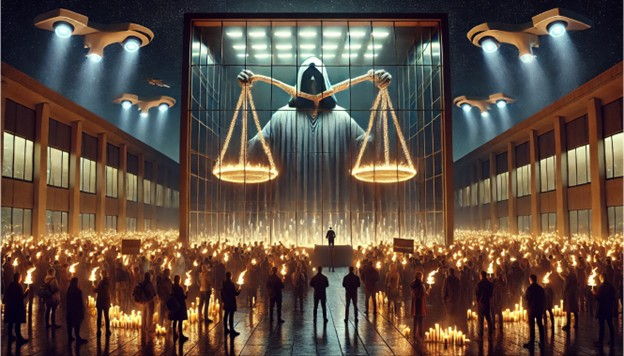Visa Crackdown: How the Trump Administration Is Targeting International Students in the Name of National Security
Input
Modified
“Troubling News”: UMass and the Invisible Hand of ICE The California Shockwave Protest, Detention, and the National Security Narrative

“Troubling News”: UMass and the Invisible Hand of ICE
In the quiet corridors of Stanford University, where students shuffle between late-night labs and historic lecture halls, an unexpected wave of fear has begun to take hold. It started with whispers—rumors that student visas were being revoked without warning, that Immigration and Customs Enforcement (ICE) was quietly updating databases, and that foreign-born students were being detained for reasons no one fully understood. By Sunday, those whispers turned into headlines. The prestigious California institution confirmed that six of its international community members—four current students and two recent graduates—had suddenly lost their legal status in the United States.
Across the country, similar stories began to surface. From Amherst to Austin, Berkeley to Boulder, foreign students found themselves ensnared in a sweeping crackdown launched by the Trump administration. The campaign, aimed at rooting out what officials describe as national security threats and potential criminal actors, has largely focused on international students involved in pro-Palestinian activism or other forms of political expression.
The message from Washington was clear: protest, and you may be punished. But for the hundreds of students affected—many of whom had done nothing more than attend demonstrations or express political views—the consequences have been severe and deeply unsettling.
At the University of Massachusetts Amherst, the news came late on a Friday night. Chancellor Javier Reyes, in a message posted to the school’s website, revealed that five international students had their visas revoked and their legal status terminated by ICE. The university had not been formally informed of the revocations. Instead, staff discovered the changes by conducting routine checks in SEVIS—the government-run Student and Exchange Visitor Information System.
“I regret sending this news so late on a Friday,” Reyes wrote, “but given that we learned of some of these revocations this evening, I felt it important to share this troubling news at this time.”
UMass Amherst, the largest public university in the state, is home to a vibrant international student population. But in recent weeks, many have grown wary. The lack of transparency from federal authorities, paired with ICE’s ability to act without prior notice, has left administrators and students in a state of ongoing anxiety. “We will continue monitoring SEVIS for further updates,” Reyes added, noting the administration had no way of knowing how many more students might be next.
The situation at UMass is not isolated. Earlier that same week, Minnesota State University at Mankato confirmed that five more international students had their visas revoked. The school, too, discovered the issue only after conducting its own checks following the detention of a Turkish student at the University of Minnesota in Minneapolis, arrested over a drunk driving conviction. It’s unclear if that arrest triggered the SEVIS reviews, but the dominoes had already begun to fall.

The California Shockwave
While East Coast institutions tried to understand what was happening, the University of California system found itself at the epicenter of the storm. Across multiple campuses, dozens of students and alumni suddenly lost their legal standing in the United States.
- At UC Berkeley, six individuals—one undergraduate, three graduate students, and two recent alumni on STEM-OPT extensions—had their visas revoked.
- UC San Diego reported the revocation of five student visas.
- At UC Davis, the number was even higher: seven current students and five recent graduates.
- UC Irvine declined to disclose specific numbers, citing privacy and safety, but said it was “providing guidance and resources to support our community.”
- At UCLA, Chancellor Julio Frenk confirmed that six current students and six recent graduates—also on OPT—had lost their visa status.
“This can bring feelings of tremendous uncertainty and anxiety to our community,” Frenk said. “We want our immigrant and international UCLA students, staff and faculty to know we support your ability to work, learn, teach and thrive here.”
The UC system issued a broader statement echoing these concerns: “This is a fluid situation, and we continue to monitor and assess its implications for the UC community and the people affected. We are committed to doing what we can to support all members of our community as they exercise their rights under the law.”
Despite the sweeping impact, federal authorities have provided no formal explanation to the universities, or the students involved. The common thread, however, seems to be political expression—particularly around the subject of pro-Palestinian activism.
The Trump administration’s crackdown has not been limited to revocations of visas. It has extended into high-profile arrests, as federal agencies seek to link student activists to alleged national security threats.
One of the most prominent cases is that of Mahmoud Khalil, a student at Columbia University. Khalil, who had been active in anti-Israel protests, was arrested and accused of supporting Hamas. He is currently the subject of legal proceedings in federal court, with the government seeking to move his case to Louisiana.
In Massachusetts, Rumeysa Ozturk, a Turkish Ph.D. student at Tufts University, was arrested by ICE in late March after publishing an anti-Israel op-ed in the campus newspaper. Her arrest sparked widespread outcry, with civil liberties advocates calling it a dangerous overreach.
Then there’s Alireza Doroudi, an Iranian doctoral student at the University of Alabama, who had his visa revoked in 2023 but was told he could remain in the U.S. while continuing his studies. That promise ended abruptly when federal agents arrested him in the middle of the night last month. The Department of Homeland Security later claimed that Doroudi “posed significant national security concerns,” though they declined to elaborate on the specifics.
Secretary of State Marco Rubio, a key figure in the administration’s immigration policy apparatus, has openly acknowledged that the State Department has revoked over 300 student visas in recent months. According to Rubio, the actions target not only those allegedly involved in criminal activity but also those tied to “anti-American” or “anti-Israel” protests.
Rubio’s comments suggest that political affiliation or speech—especially when tied to pro-Palestinian or anti-Israel causes—is being treated as a red flag by federal agencies. This has raised alarm bells among legal scholars, university administrators, and civil rights organizations, who argue that such actions may violate constitutional protections of free speech and due process, even for non-citizens.

Protest, Detention, and the National Security Narrative
In most cases, affected universities learned of the visa cancellations only after the fact, often through SEVIS database checks. There has been no clear pattern of notification or explanation, and the federal government has offered no public list of those targeted or the criteria used. Schools have been left to piece together what they can, often while navigating privacy restrictions and mounting panic among international students.
For students, the consequences are immediate and devastating. A revoked visa often means the loss of not only legal status, but also housing, income, health care, and academic progress. Some have been forced to leave the country within days; others have been detained without knowing why.
Still others remain in limbo—unsure whether they will be next.
“I just want to finish my degree,” said one affected student, speaking anonymously through an advocacy group. “I came here to study, to learn, not to be treated like a threat.”
Universities are trying to provide legal aid, counseling services, and emergency housing to those who have been affected. But the sheer lack of federal coordination, combined with the climate of fear, has made even these basic acts of support difficult to sustain.
What began as a quiet immigration policy shift has now become a defining battle over the rights of international students, academic freedom, and the future of political expression on U.S. campuses. The Trump administration’s aggressive revocation campaign—cloaked in language about security and legality—has left hundreds of students disenfranchised, dozens detained, and entire institutions grappling with legal and ethical uncertainty.
As universities from coast to coast confront this new reality, a fundamental question looms: Can international students safely express their beliefs on American soil—or has political speech become grounds for expulsion?
In the absence of transparency, and with federal agencies operating in silence, the answer grows more ominous by the day.





















